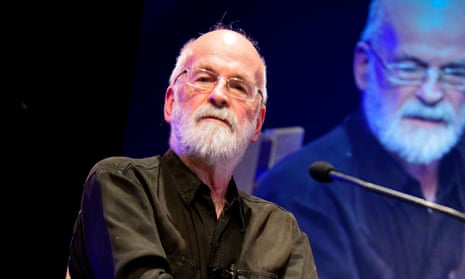Hugo award winning science fiction author Ann Leckie has blasted a Hungarian sci-fi magazine for translating short stories and publishing them without paying the authors.
In March, journalist Pintér Bence conducted an investigation for Mandiner Magazine, which found that, in 2015 and 2016 science fiction magazine Galaktika had published Hungarian translations of numerous short stories available online or from anthologies, without seeking permission from the authors or informing them they had done so. Galaktika, which was revived in 2004, is financed and published by Metropolis Media, which also publishes sci-fi books and novels.
After being contacted, the agencies, estates and publishers of several high-profile authors, including Terry Pratchett, George RR Martin, Robert Heinlein, Kim Stanley Robinson and Connie Willis told Mandiner that they had not given permission for the reprinting of their works. Short stories by authors not normally associated with sci-fi, including one by Moshin Hamid that ran in the Financial Times and another by Zadie Smith from the New Yorker, were also translated and published without the authors’ permission.
Leckie, who found one of her own stories had been printed, wrote on her website that she felt authors had “been hesitant to make noise about it, because if Galaktika folded, Hungary wouldn’t have any other prominent venue for short sf. I’m going to be straight with you, though … I have come to the conclusion that while this sort of thing seems reasonable on the surface (if a big magazine went down, that would be bad for writers!), when you look closely you start to see how skeevy it is.”
A followup investigation by Mandiner in July, into Galaktika’s archive extending back to when it was revived in 2004, found evidence that the magazine had run stories without gaining permission from authors at least once every year.
While authors Theodora Gross, Daniel Keohane, Mark A Rayner, Ruth Nestvold, Eugie Foster and Kelly Link gave permission for their stories to be translated and reprinted, several authors came to an agreement with Galaktika only after the publication came to their attention. In one case, Galaktika refused to pay one unnamed author because their short story was reprinted more than five years before. “But if you have another short story that we could publish, we would pay you larger amount than what we usually pay,” an email from Galaktika read. “We usually pay 10-20 USD for a story. Now we would pay you 30 USD. I know that this is a very small amount but our budget doesn’t allow more. You are absolutely correct that you are entitled to a compensation but please let me remind you these: our market is unfortunately much, much smaller than in English speaking countries.”
In July, Galaktika editor István Burger made a public statement where he said the magazine’s practices were formed during “an unfortunate verbal agreement”. The agreement, Burger said, was with an unnamed “leader of one of the most respected literary agencies”, who Burger had approached when he revived the magazine, to get advice about seeking permissions for publishing short stories.
Burger, who also owns Metropolis Media, said the verbal agreement with the unnamed individual was that because the magazine planned to publish books as well, the magazine could “consider short stories in Galaktika sort of an advertisement in which authors are introduced to Hungarian readers, so that we could publish their novels afterwards. The money we would pay for the rights for the novels contains the price of short stories. So agencies don’t have to deal with rights of short stories for $10 which is as much work as to get the rights of a $1000 novel. During this conversation it became obvious that agencies don’t want to deal with $10-20 so I didn’t want to bother the others with similar requests. Of course in case of longer stories and novels we made contracts.”
Leckie called this “utter bullshit” and said the idea of short stories being advertisements for authors was “suspiciously like the claim that ‘exposure’ is a valuable commodity that writers should be more than happy to get in lieu of actual money. Sadly, one cannot eat exposure, or pay rent with it.”
“While any author is of course within their rights to allow a magazine to publish their work without payment, and there is absolutely nothing wrong with any given writer choosing to do that with any given story, the key words there are ‘writer’ and ‘choosing’. Editors can’t just print anything they want without paying or asking permission because the author will get exposure and besides the magazine can’t really afford to pay.”
According to the Science Fiction and Fantasy Writers of America website, the Hungarian literary agency, Kátai & Bolzai is representing multiple authors affected and managed to secure a per-story fee of $75 for 37 stories by 16 different authors, including Martin and Stanley Robinson. But as of mid-September, Kátai & Bolzai was reportedly still working on an arrangement for other clients with authors involved.
“SFWA formally recommends that authors, editors, translators, and other publishing professionals avoid working with Galaktika until the magazine has demonstrated that existing issues have been addressed and that there will be no recurrence,” a statement from SFWA reads, ending on the note that it was “saddened” by Galaktika’s actions, given it once sold 94,000 copies a month in Hungary, compared with an estimated 1,000 a month now.

Comments (…)
Sign in or create your Guardian account to join the discussion